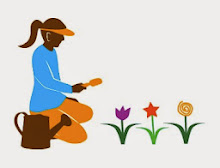Saturday, June 16, 2012
Summer's Here -- Let 'em ride, but don't let 'em slide!
"School's Out for Summer" - Alice Cooper
Forty years later, Alice Cooper's rebellious chant stands as the anthem for kids around the country as the school year draws to a close. And who can blame them? They've worked hard and they're ready to let the good times roll with "no more pencils, no more books, no more teachers..." We should let them enjoy the ride -- bikes, roller coasters, skateboards, waves, and the like. But, we cannot let them get on the slide; the "summer slide", that is.
Educators use the term 'summer slide' to refer to the loss of academic skills children often experience during the summer. The National Summer Learning Association estimates that students lose between one and three months of learning during the summer months. A study conducted by the Johns Hopkins Center for Summer Learning states, "It's common for teachers to spend at least a month re-teaching material that students have forgotten over the summer." Research has also shown that the loss of math skills tends to be even greater than that of reading skills, during the summer months. The news sounds gloomy, but summer doesn't have to be a 'bummer'. You CAN keep your child off the slide and make time for recreation, too. Here are a few ideas:
- Keep reading. Allow your child to select books that interest him in addition those on assigned reading lists. Encourage him to read independently, but also plan time to read aloud together, even if he is a competent reader, as this can improve speaking and listening skills while providing a special connection as you learn and explore ideas together. Discuss what is being read and ask questions that encourage him to dig beneath the surface for meaning and purpose in the material. Read books that are also movies to expand on the experience, visually. Show the importance of reading in everyday life (ex. signs, instructions, correspondence, news/information, etc.). Have your child enroll in a summer reading program at your local library. Help your child develop the habit of reading the newspaper.
- Write on. Your child can practice her writing skills by keeping a journal of her daily activities and thoughts. Select a journal together, with a design or theme that interests her. This activity can strengthen her skills in many ways including handwriting, communicating for understanding, as well as critical thinking. Journaling can also encourage introspection that is vital as she grows and develops a better sense of who she is and how she wants to 'be' in the world. For more ideas, go to www.scholastic.com/parents/activities/writing.
- Incorporate academics such as math and reading into family activities. Allow your child to join you on errands that involve purchases and payments. Plan family travel together, including the itinerary and budget. Include your child in household jobs and projects that require planning, measurement, or management of materials.
- Take advantage of educational websites featuring learning games and activities. Your child may get carried away and not realize how much he is 'learning'. For suggestions, by subject area, visit http://www.goodsitesforkids.org.
- Take trips. Visit historic sites, libraries, zoos, county fairs, and museums, and attend artistic performances.
- Allow your child to explore special interests with camps and field trips as well as related books, magazines, and movies. Community service or a summer job can provide new learning opportunities for your child or, on the other hand, allow her to practice what she already knows how to do (ex. tutoring, serving as a camp counselor, etc.)
- Play games (not just electronic) that involve math, reading, and critical thinking. These might include board games, card games, crossword puzzles, logic games, and even games that require physical action as well as strategy. Finally,
- Set aside time to work on academic skills everyday. Alternate between formal lessons and other activities such as those described above.
An unknown philosopher once said, "Every summer has a story" and indeed that is true. Make sure your story has a happy ending with your child feeling rejuvenated, yet prepared to forge new pathways, because, alas, he remembers the ground he has already covered.
~Carol~
Copyright © 2012 Gardener Parenting Consultants, LLC
info@gardenerparenting.com
Labels:
summer academics,
summer activities,
summer slide
Subscribe to:
Post Comments (Atom)


No comments:
Post a Comment